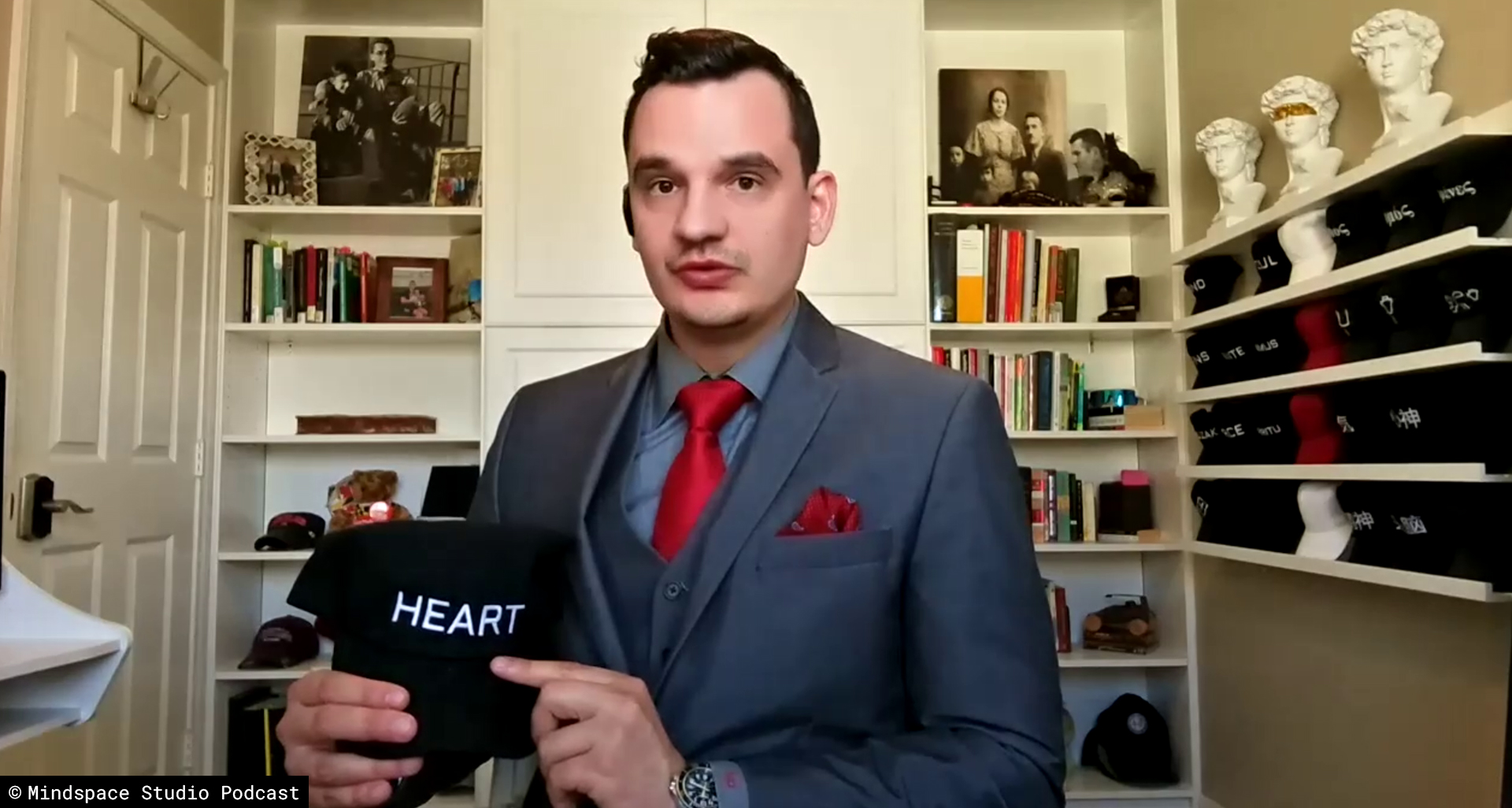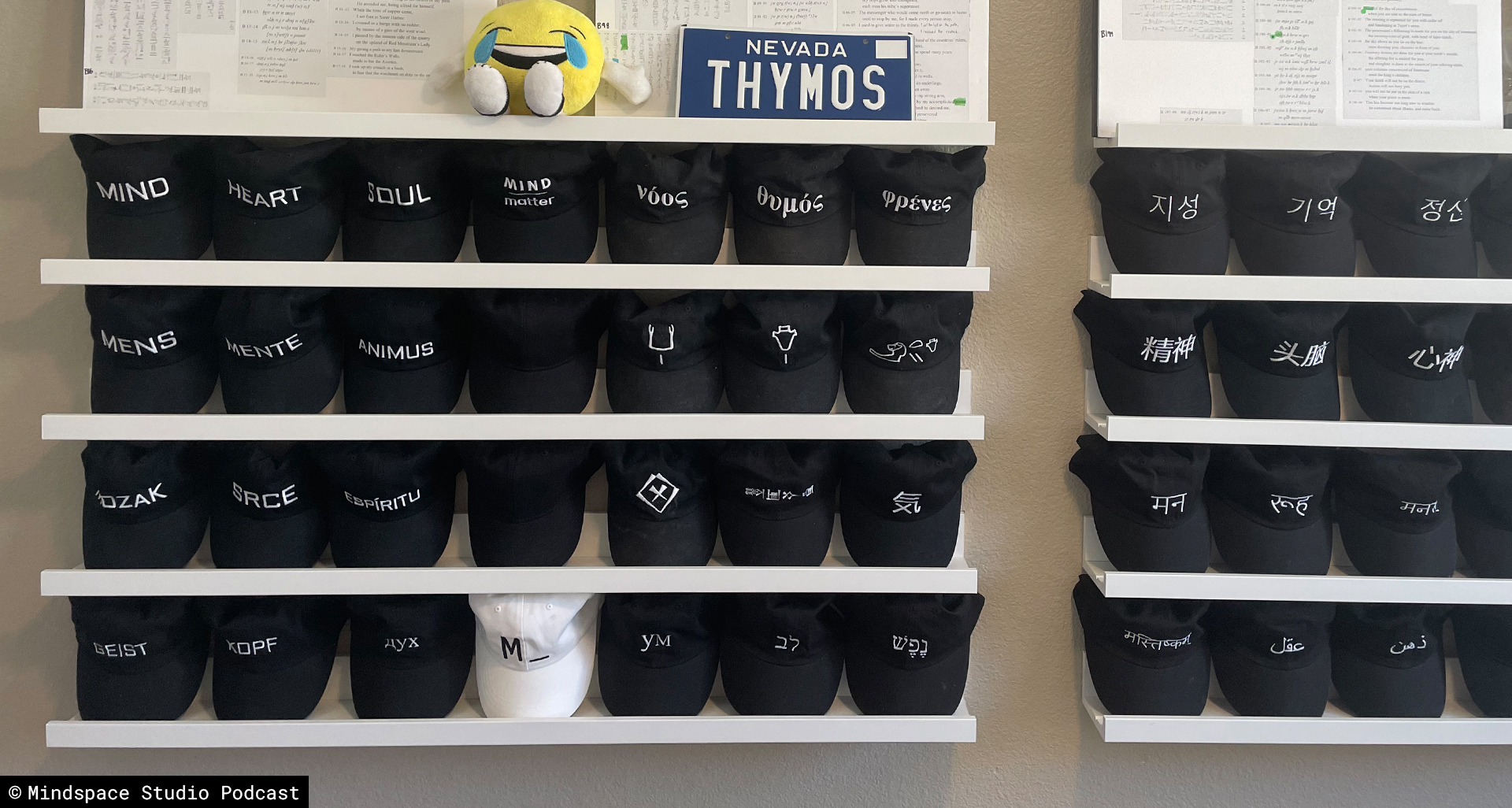About Mindspace Studio
Mindspace Studio is a psycholinguistics podcast dedicated to discussing the concept of "mind" in different languages. Each 30-60 minute episode is hosted by Boban Dedović, a psycholinguist and technologist.
Statement of Purpose
Motivation: As of this writing, it is widely believed that the first attested human writings are in languages known as Ancient Egyptian and Sumerian. Anyone who studies these languages and their ancient texts will probably observe certain oddities. For example, the words used to describe the modern concept of "mind" are usually anatomically located in the trunk of the body, mainly the chest and midriff areas. Emotions and thoughts are said to take place in these bodily areas too. However, this belief does not reflect the modern attitudes of native speakers of languages like English, Greek, and the Romance languages–all belonging to the Proto-Indo-European family of languages. In contrast, people today tend to localize "mind" and thinking action behind the eyes, and in the brain. Those professionals who do the rigorous work of translating ancient texts must confront this problem on a regular basis. This is one of the many reasons why different translators interpret the same text differently from one another.
Now, this is quite peculiar. If human mentality has always been the same throughout recorded history, how can a reasonable person justify the fact that the ancients used radically different means of describing psychological activity?
To answer this question, many have pointed to the fact that the ancients did not have knowledge of the brain's role or modern psychology. Such a statement is difficult to contest. For example, ancient Egyptians discarded the brain during the mummification process, and assigned the human heart a high station of importance. We moderns thus have more information about the natural world, how it works, and our own bodies. But, when taken to completion, this statement has important psychological implications. That is, if knowledge has the capacity to impact our beliefs and mentalities, then it follows necessarily that the absence of said knowledge implies that ancient people may have had different mentalities than our own.
The notion that human mentality has stayed the same over time must therefore be called into question. Such observations were the motivating factors for creating the Mindspace Studio Podcast.
Significance: Most moderns live in a world governed by the assumption that all human beings have some degree of agency and free will. For example, our legal system and laws assign different punishments unto perpetrators based on whether they intended to break the law, or had knowledge about it, or did it accidentally. Our religions tell us that human beings are personally accountable for their actions, and provide blueprints for how to behave. Our parents and schools teach us to control our emotions and think before we act. When we meet other people, we assume that they also have a concept of "mind" capable of introspection about the world.
In full context, then, this capacity of individual agency via the concept of "mind" is integral to the entire human condition. However, an astonishingly little amount of research is being done on the word "mind" from a psycholinguistic standpoint. That is, there are not many scholars interested in the specific definitions, descriptions, and uses of the word "mind." The same can be said of the broader category of words known as "mental actions." The Mindspace Studio Podcast is therefore a significant contribution to human knowledge because it is dedicated to analyzing some of the most important words in almost all written languages.
Research questions: The Mindspace Studio Podcast serves the purpose of addressing three specific research questions:
- What are the words, phrases, and expressions that different languages and language families use to express the concept of "mind," emotions, and volition?
- What is the relationship between language and human mentality?
- How do modern notions of mind compare with that of civilizations of antiquity, as documented in various ancient languages?
About the Podcast
Background: The Mindspace Studio Podcast was started in January 2021 as a psycholinguistic research project by Boban Dedović, a former graduate researcher at the University of Chicago, Chicago, IL, USA. The original purpose of the podcast was to share primary source materials for a revised graduate thesis in the field of Egyptology. It has since been continued and its scope revised in order to include interviews from thought leaders. As of March 2023, the Mindspace Studio Podcast is managed under the auspices of the OMNIKA Foundation, a 501(c)(3) nonprofit organization based in the United States of America whose mission is to organize and make freely available all the world's mythological contents.
Mission: The mission of the Mindspace Studio Podcast is to provide accessible, inclusive, quality programming related to the word "mind" from a psycholinguistic perspective.
- Accessibility: The episodes are provided for free on the mindspace.studio website, Apple Podcasts, Google Podcasts, and YouTube. The content is provided via audio, video, and full-text transcripts.
- Inclusiveness: The podcast includes discussion of all languages, language families, and writing systems. This includes dead ancient languages like Sumerian, Ancient Egyptian, Akkadian, and others. The guests are thought leaders that represent different cultures, backgrounds, and modes of interpretation. Difficult or technical content is explained in plain English in order to suit the needs of a broad audience.
- Quality: Almost all major concepts or ideas are fact-checked or cited with notes and reference details. Each recording is originally several hours, and then heavily edited into a tight thirty to sixty minute episode.
Disclosures: The Mindspace Studio Podcast has no commercial interests and all episodes are provided to the public for free.
About the Host
Boban Dedović is the host of the Mindspace Studio Podcast. As a trained psycholinguist with a strong background in software engineering, Boban is uniquely positioned to investigate the intersection of psychology and language. His native language is Serbian-Croatian-Bosnian, a grouping of similar languages spoken in the Balkans. He earned his B.A. in Religions of Antiquity from the University of Maryland, College Park. There, he studied Classical Latin and began studying "mind" words in Homeric Greek and Sumerian. His senior seminar thesis, titled "Inanna's Descent to the Netherworld," documented all of the scholarship for a Sumerian afterlife myth of the same title. Under the supervision of Dr. Matthew J. Suriano, this work won the University of Maryland's prestigious Library Award for Research, and demonstrated the complexity of translating the Sumerian language.

Boban also earned a B.S. in Psychology from the University of Maryland, College Park. Under the supervision of Dr. Edward Bernat and Dr. Jordan Epistola, Boban combined the methods of hard science with the topic of ancient languages in order to produce a paper titled "'Minds' in 'Homer': A quantitative psycholinguistic comparison of the Iliad and Odyssey." This work won the University of Maryland's prestigious Library Award for Research a second time, and was later presented at the International Conference on the Mental Lexicon in Niagara-on-the-Lake, Ontario, Canada.
In following his passion for ancient languages, Boban earned an M.A. in the Humanities from the University of Chicago, an institution globally recognized for its contributions to ancient studies. There, Boban studied both Akkadian and Middle Egyptian under the supervision of world-class professors. While studying Mesopotamian Law under Dr. Martha T. Roth, Boban built ehammurabi.com, which digitized the entire Law Code of Hammurabi in a single user interface. Under the supervision of Dr. Janet H. Johnson, Boban produced a master's thesis titled "'Heart,' 'Mind,' and Behavioral Causation in the Songs of Sinuhe: Being applied psycholinguistic analyses of grammatical and lexical patterns of ib, rḫ, and other alleged 'mental language' words and passages in the Middle Egyptian Story of Sinuhe." Both of these works systematically documented the nature, frequency, and translation disparities of "mind" words in the Semitic language family.
Following his time at the University of Chicago, Boban continued applying his background in technology in order to make ancient languages available for a wider audience. He contructed a website application named Allo, which is a digital dictionary platform for dead ancient languages. The first complete dictionary–Classical Latin–will be presented at the 24th Biennial Conference of the Dictionary Society of North America in Boulder, Colorado, from May 31 – June 3, 2023. Similarly, Boban also serves as the Chief Software Architect and Executive Director of the OMNIKA Foundation, a 501(c)(3) nonprofit focused on digitizing and making freely available all the world's mythological contents. Boban's other papers, currently pending release, all utilize the methods of hard science in order to analyze "mind" words and psycholinguistic facets of various languages.
All of the interviews for the Mindspace Studio Podcast are conducted remotely from Boban's home office, which is known for its iconic display of black and white hats embroidered with "mind" words in various languages and scripts.

For more information about Boban Dedović, please visit his personal website on bobandedovic.com or visit his Twitter profile, @BobanDedovic.
Contact
General: Please fill out the form linked below if you have any general questions, concerns, or comments. Include your contact information if you would like a reply.
Contact Mindspace StudioFuture guests: Please fill out the form linked below if you are interested in being a guest on the podcast. Make sure to include your linguistic background. A form submission does not guarantee that you will be scheduled. Because of the nature of the research project, preference will be given to individuals with diverse linguistic backgrounds.
Become a Guest